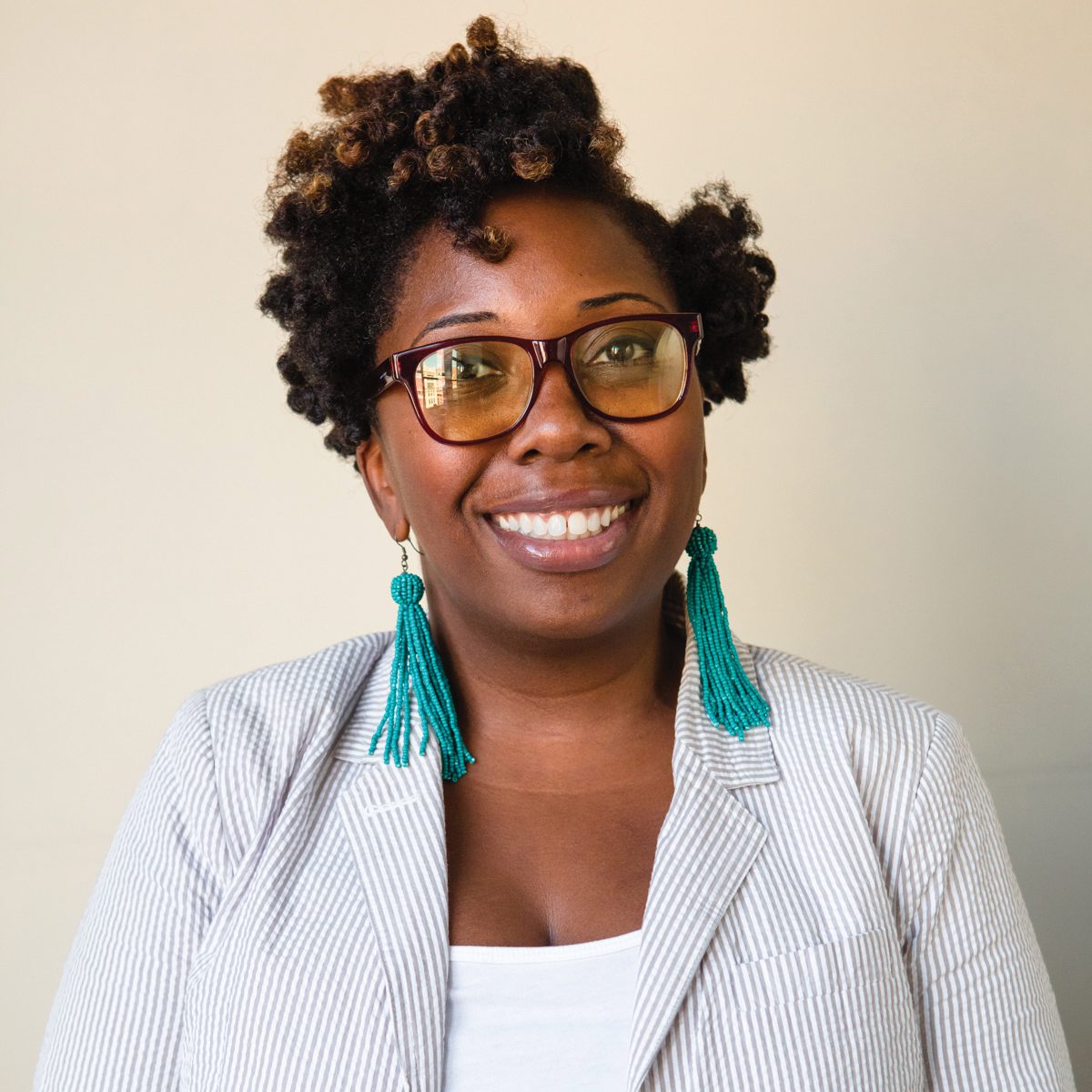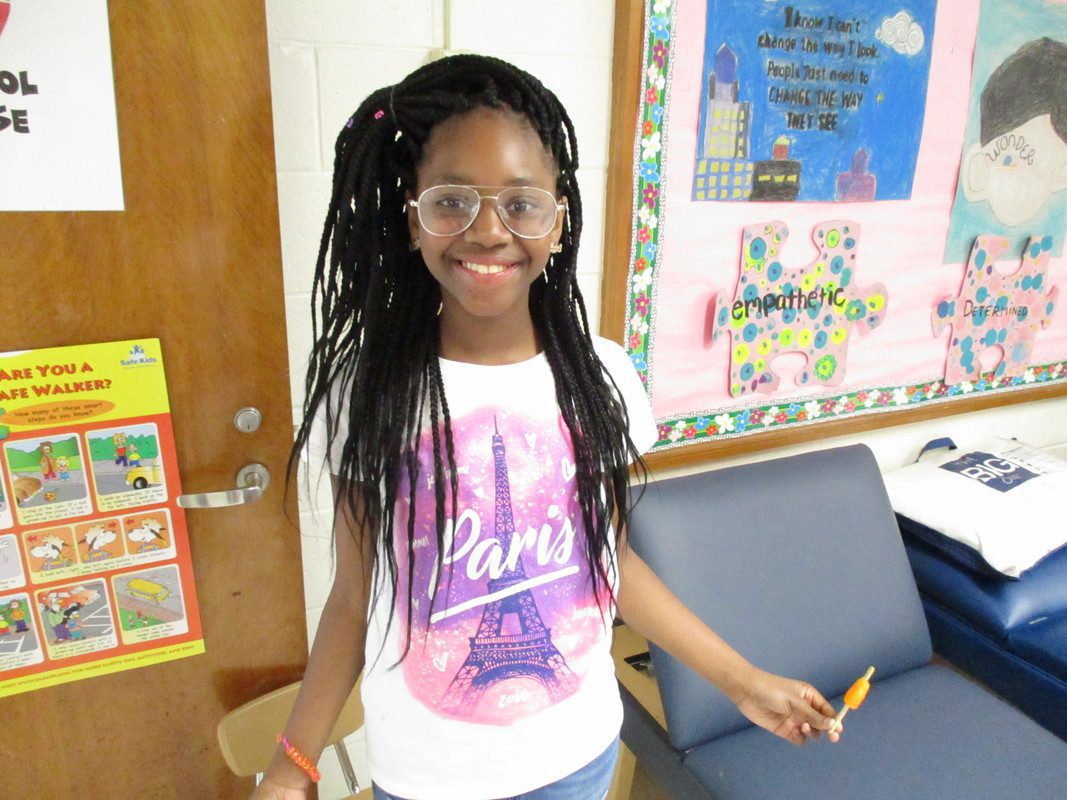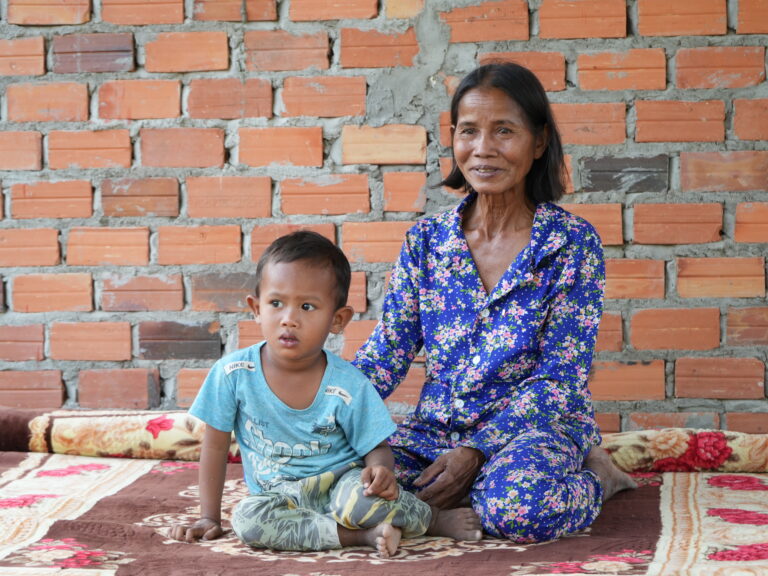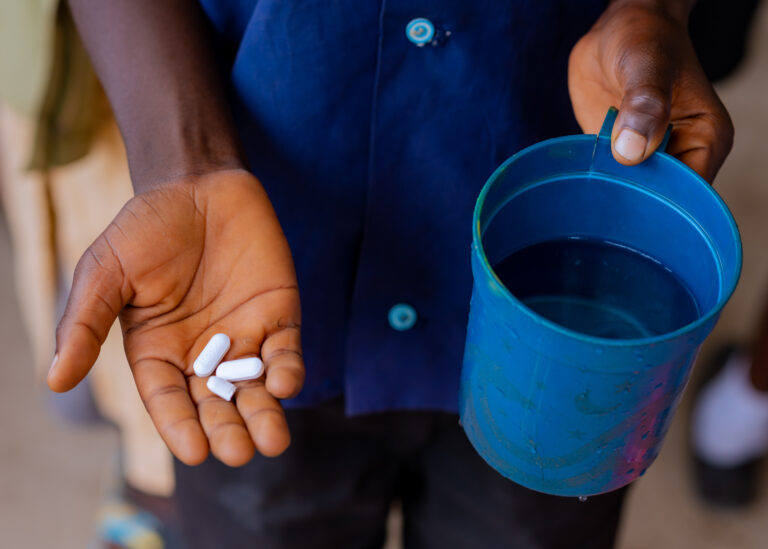Looking Bravely: The power of a simple pair of eyeglasses

We recently spoke with Kindal Adams, who manages our U.S. Vision Program in New Jersey. Working in some of the state’s most underserved communities, Kindal is helping to ensure that children and adults can see clearly, achieve their goals, and reach their true potential.
As she celebrates 20 years with Helen Keller Intl, Kindal shares how the COVID-19 pandemic has reshaped her work — and opened up new opportunities to reach communities in need.
How has the pandemic changed your role at Helen Keller?
When the public schools in New Jersey closed suddenly in March 2020, we were in the middle of providing vision screenings and prescription eyeglasses free-of-charge to low-income students at schools in Jersey City, Newark, East Orange and Passaic. In the weeks that followed, my daughter and I packed up hundreds of pairs of glasses at our kitchen table and sent them out by FedEx to the kids who were scheduled to receive them.
What were some of the challenges the families were facing?
It can be a hard sell getting kids to wear glasses. But we had so many families reaching out to us, saying that their child was due to get glasses and they really needed them. Some of the parents had just lost their jobs and didn’t have vision insurance. We started getting requests for help not only for kids but also for adults. It was hard to hear about so many families going through such difficult circumstances. These past few months have really shined a light on the inequities in our society.
What is your team focusing on now?
We’ve transitioned to providing vision services through community-based organizations. It’s a different experience interacting with adults versus the young ones. The people we work with are facing a lot of challenges, whether it be job loss or a lack of housing. They understand that vision screenings and prescription eyeglasses can be costly, which is a limitation for most of them. So, they’re really grateful to receive these services free-of-charge.

Help vulnerable children and adults reach their true potential. Your gift today will provide families in need with vision care and other essential health services.
Which vulnerable groups are you reaching?
The largest organization we’re working with right now is New Jersey Re-Entry Corporation, which helps ex-offenders get acclimated to life outside of prison. Many of these clients are older people who have been put out into the world in the middle of a pandemic, with few resources. I recently met a gentleman who had never used a cell phone. He was impressed by the technology and equipment that we brought on site for the vision screenings.
We’re also providing services at family shelters in Newark, and we have plans to start working in Elizabeth and East Orange. Prior to COVID, families were allowed to stay in the shelters for up to 30 days only. At this point, everyone has been there for more than 100 days. It doesn’t look like they will be leaving any time soon. Most residents are women with children. School-aged kids complete lessons online for their respective schools in a designated learning room. Having properly prescribed glasses is more important than ever to their success at work and in school.
What do you find most rewarding about your work?
I’m passionate about helping others. A lot of people who have been knocked down by life and are living on the fringes of society feel like they’re invisible. So when our clients enter the Helen Keller service area I make a point to say, “How are you? How’s your day going?” I ask those questions because I want to acknowledge them. The truth is, no one else is asking them.
What are some of the challenges?
I always feel like I want to do more. I’m with the clients for such a short amount of time, and I want to fix everything. It’s an occupational hazard. But for people who are down on their luck, who have faced obstacles in life and are trying to do better for themselves, being able to see clearly is so important for taking the next step. It’s like a new beginning.



